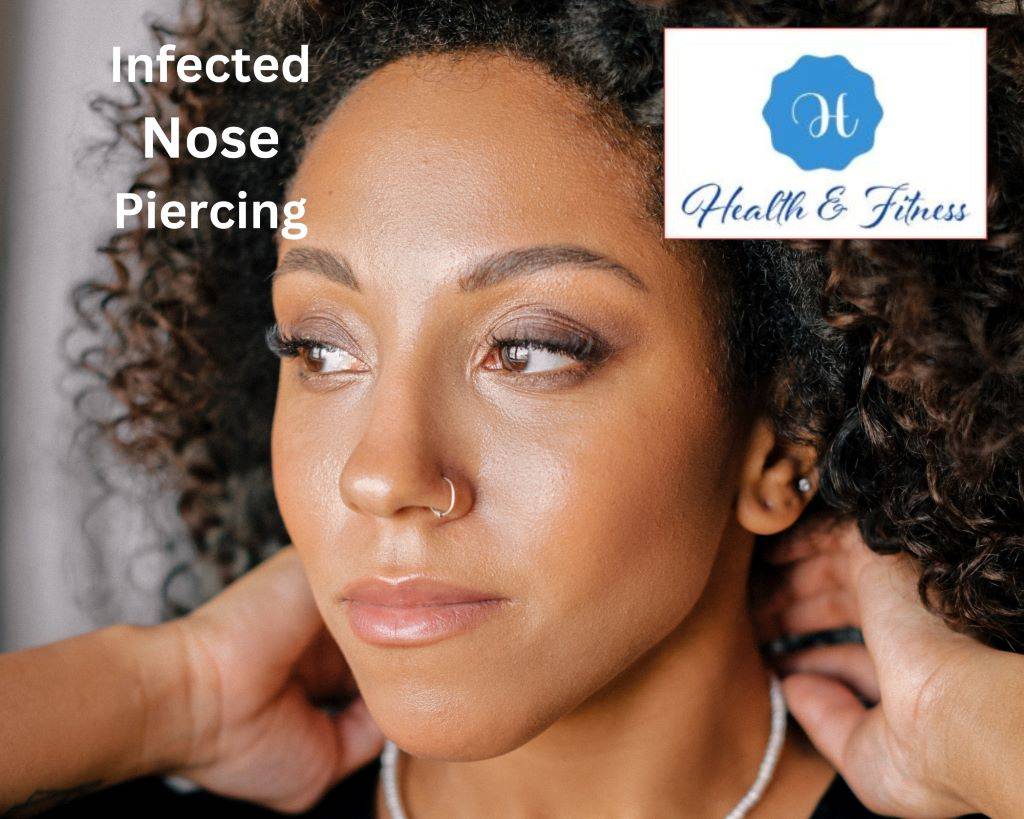Infected Nose Piercing: Symptoms, Causes, and How to Treat Them
Dealing with an infected nose piercing? Explore symptoms, causes, and effective treatment options for ‘Infected Nose Piercing.’ Reclaim your comfort now.
Introduction to Infected Nose Piercing
Nose piercings have become increasingly popular in recent years, with many people getting them as self-expression or simply because they like how they look. However, like any other type of body modification, nose piercings come with their own set of risks, including infection. In this article, we’ll inspect infected nose piercings, their symptoms, their causes, and how to treat them effectively.
Symptoms of an Infected Nose Piercing
An infected nose piercing can be painful and frustrating. It’s important to recognize the signs of infection early on, so you can take action and prevent any further complications. Here are some common symptoms of an infected nose piercing:
Redness and swelling: While some redness and swelling are normal after getting a new piercing, if these symptoms don’t improve after a few days or worse, it could be a sign of infection.
Pain and tenderness: It’s normal for a new piercing to be tender, but if the pain increases or persists, it may be a sign of infection.
Discharge: a handful of clear or slightly white discharge is normal during the healing process. However, if you notice yellow, green, or foul-smelling discharge, this could indicate an infection.
Fever or chills: These are signs of systemic infection and should be taken seriously. If you experience fever or chills in addition to the other symptoms, consult a healthcare professional immediately.
Prolonged healing time: Most nose piercings take around 2-4 months to heal fully. If your piercing takes much longer than that, or if you notice any regression in the healing process, it could be a sign of infection.
Heat and Warmth: The infected area may feel warm to the touch due to increased blood flow and inflammation
Causes of an Infected Nose Piercing
Several factors can contribute to an infected nose piercing.
Understanding these causes will help you prevent future infections and take appropriate precautions. Here are some of the most common causes:
Poor aftercare
Not following the recommended aftercare instructions can lead to infection. This includes touching the piercing with dirty hands, using harsh cleaning agents, or not cleaning it regularly.
Low-quality jewellers
Using low-quality or improperly sized jewellery can irritate, leading to infection. Make sure to use hypoallergenic, high-quality jewellers made from materials like titanium, niobium, or surgical steel.
Trauma
Bumping, snagging, or sleeping on the piercing can cause trauma to the area, which may result in infection.
Allergic reaction
Some people may be allergic to the materials used by the jeweller. This can cause an allergic reaction, which can sometimes lead to infection.
Unsterile equipment
If the piercer doesn’t properly sterilize its equipment, it can introduce bacteria and other pathogens to the piercing site, leading to infection.
How to Treat an Infected Nose Piercing
If you suspect that your nose piercing is infected, it’s important to take action as soon as possible. Here are some steps you can take to treat an infected nose piercing:
Clean the area
Gently clean the piercing site with a saline solution or a mild, fragrance-free soap. Avoid using alcohol or hydrogen peroxide, as these can be too harsh and delay the healing process.
Apply a warm compress.
Soak a clean cloth in warm water, wring it out, and hold it against the infected area for 5-10 minutes. Do this 2-3 times daily to help reduce swelling and promote healing.
Avoid removing the jewellery.
It may be tempting to remove the jewellery, but doing so can cause the hole to close up, trapping the infection inside. Instead, keep the jewellery in place to allow for proper drainage of any discharge.
Take over-the-counter pain relievers.
Non-prescription pain relievers like ibuprofen or acetaminophen can help alleviate pain and reduce inflammation.
Consult a healthcare professional.
If your symptoms don’t improve or worsen after a few days of home treatment, it’s important to consult a healthcare professional for further evaluation and treatment. They may prescribe antibiotics or other medications to help clear the infection.
Avoid Touching or Rotating the Jewelry
It’s crucial to avoid touching your infected nose piercing with dirty hands or rotating the jewellery excessively. This can introduce more bacteria and delay the healing process.
Maintain Overall Health
Taking care of your general health can also aid in the healing of an infected nose piercing. Ensure you’re getting enough rest, eating a balanced diet, and staying hydrated to support your body’s immune system in fighting off the infection.
Preventing Nose Piercing Infections
Taking proper care of your nose piercing from the start can minimize the risk of infection. Here are some tips for preventing infected nose piercings:
Choose a reputable piercer
Make sure to select a professional, experienced piercer who follows proper sterilization procedures and uses high-quality equipment and jewellery.
Follow aftercare instructions
Your piercer will provide you with detailed aftercare instructions. Be sure to heel them and ask questions if you’re unsure about any steps.
Keep your hands clean.
Always wash your hands thoroughly with soap and water before touching your piercing or changing the jewellery.
Avoid irritants
Steer clear of harsh chemicals, fragrances, and alcohol-based products when cleaning your piercing, as they can cause irritation and delay healing.
Be cautious with makeup and skincare products.
Keep makeup, lotions, and other skincare products away from the piercing site to prevent irritation and contamination.
Protect your piercing
Be mindful of your piercing when dressing, sleeping, or participating in activities that may cause trauma to the area. You can use a small, clean bandage or gauze to cover the piercing if necessary.
Frequently Asked Questions for Infected Nose Piercing
Q: How long does it take for an infected nose piercing to heal?
A: The healing time for an infected nose piercing will depend on the severity of the infection and how quickly you begin treatment. With proper care, most infections should improve within a few days to a week. However, it’s important to continue treatment and follow aftercare instructions until the infection has completely cleared.
Q: Can an infected nose piercing cause a bump?
A: Yes, an infected nose piercing can sometimes cause a bump to form around the piercing site. This bump may be filled with pus or fluid and can be painful or tender to the touch. If you notice a bump forming, it’s important to treat the infection and follow proper aftercare to prevent further complications.
Q: Should I remove the jewellery if my nose piercing is infected?
A: In most cases, it’s best not to remove the jewellery if you suspect your nose piercing is infected. Removing the jewellery can cause the hole to close up, trapping the infection inside and leading to an abscess. Instead, keep the jewellery in place and follow the recommended treatment steps to help clear the infection.
Q: When should I see a healthcare professional for an infected nose piercing?
A: It’s important to consult a healthcare professional if your symptoms don’t improve or worsen after a few days of home treatment. Signs that you should seek medical attention include severe pain, fever, chills, excessive swelling, or discharge that is yellow, green, or foul-smelling. A healthcare professional can properly evaluate your condition and may prescribe antibiotics or other medications to help clear the infection.
Q: How can I prevent my nose piercing from getting infected again?
A: To prevent your nose piercing from becoming infected again, it’s crucial to maintain proper hygiene and follow the recommended aftercare instructions. Keep the piercing site clean, avoid touching it with dirty hands, and be cautious with makeup and skincare products. Additionally, make sure to use high-quality, hypoallergenic jewellery and protect the piercing from trauma or irritation.
Conclusion
It’s essential to be aware of the symptoms, causes, and treatments for infected nose piercings to ensure a healthy healing process. By following the recommended aftercare instructions, using high-quality jewellery, and seeking prompt treatment if you suspect an infection, you can minimize the risk of complications and enjoy your new nose piercing for years to come.
Reference
Association of Professional Piercers. (n.d.). Piercing Troubleshooting. Retrieved from https://www.safepiercing.org/piercing/troubleshooting/



